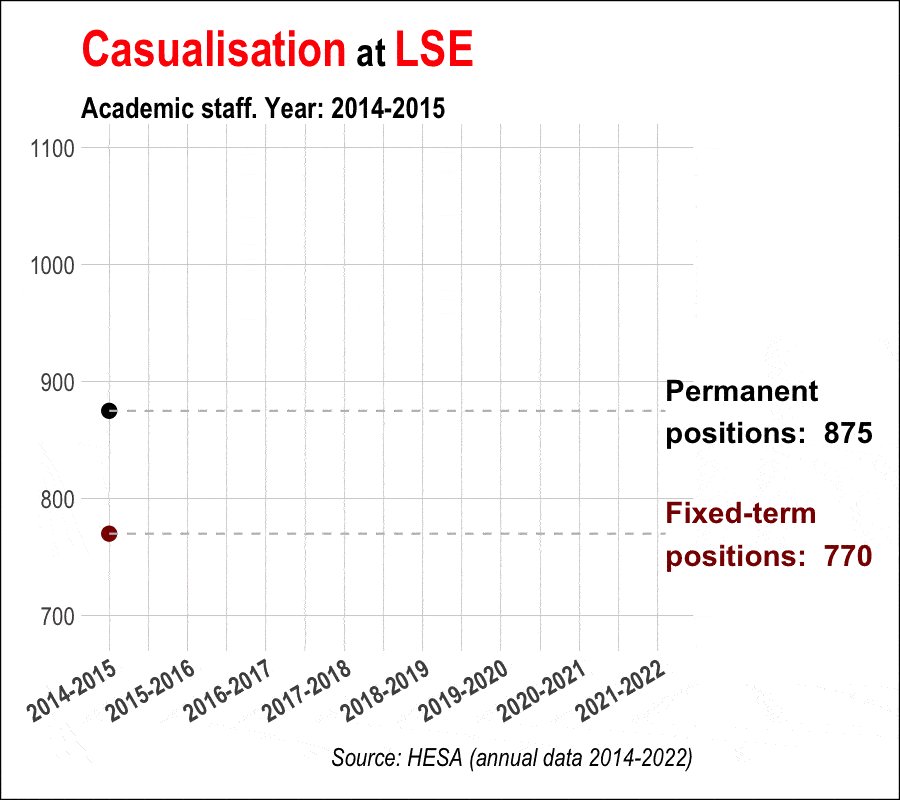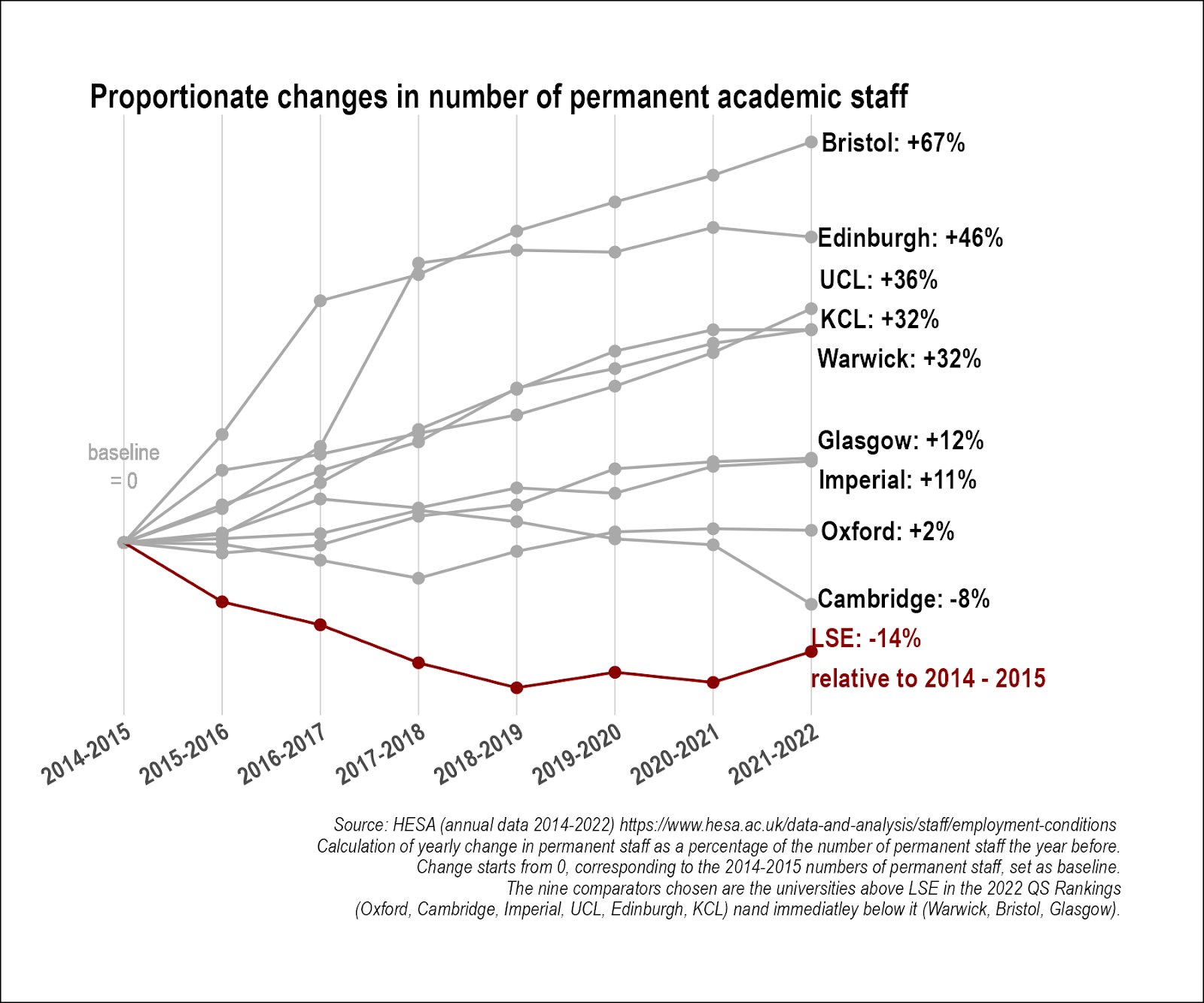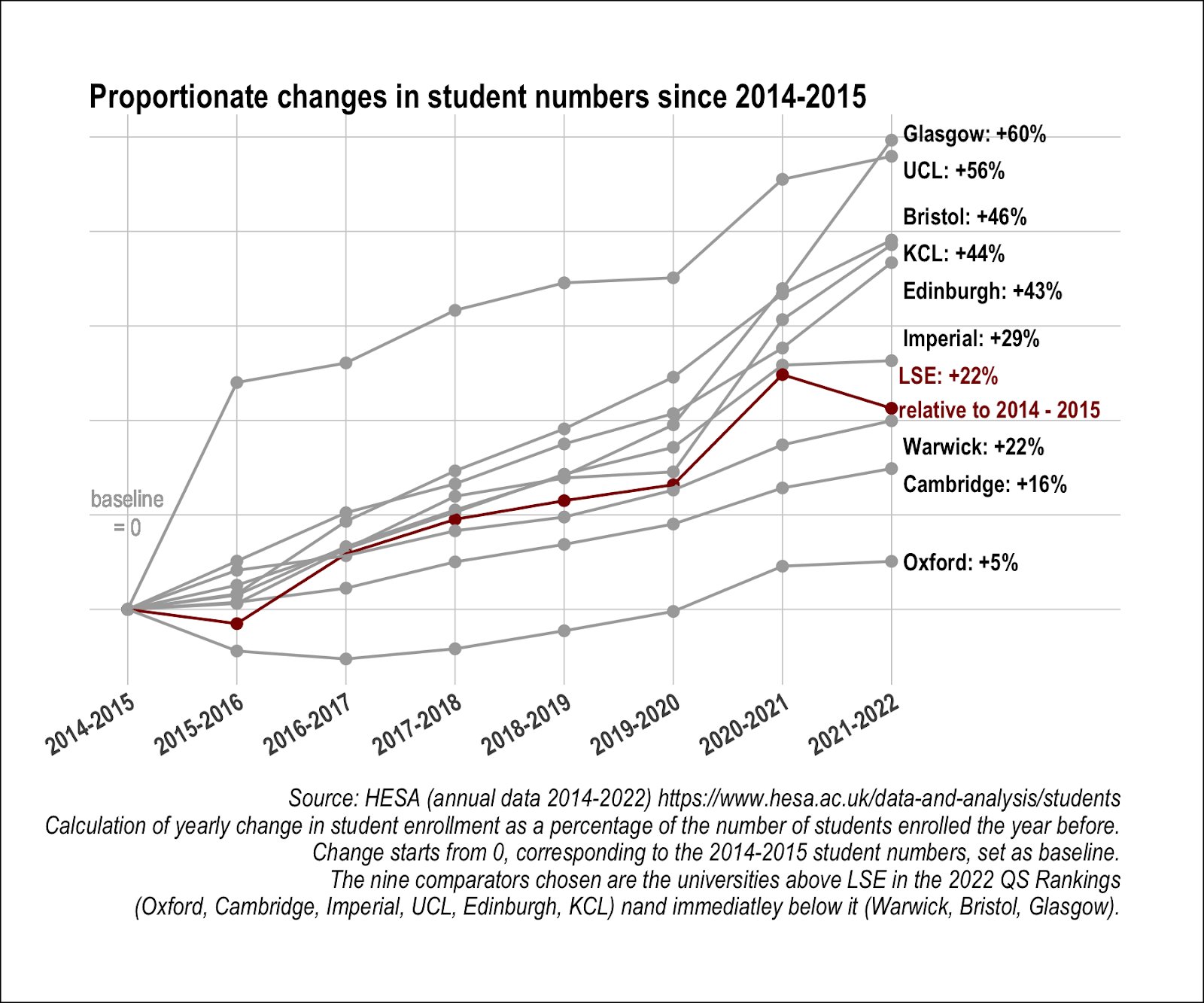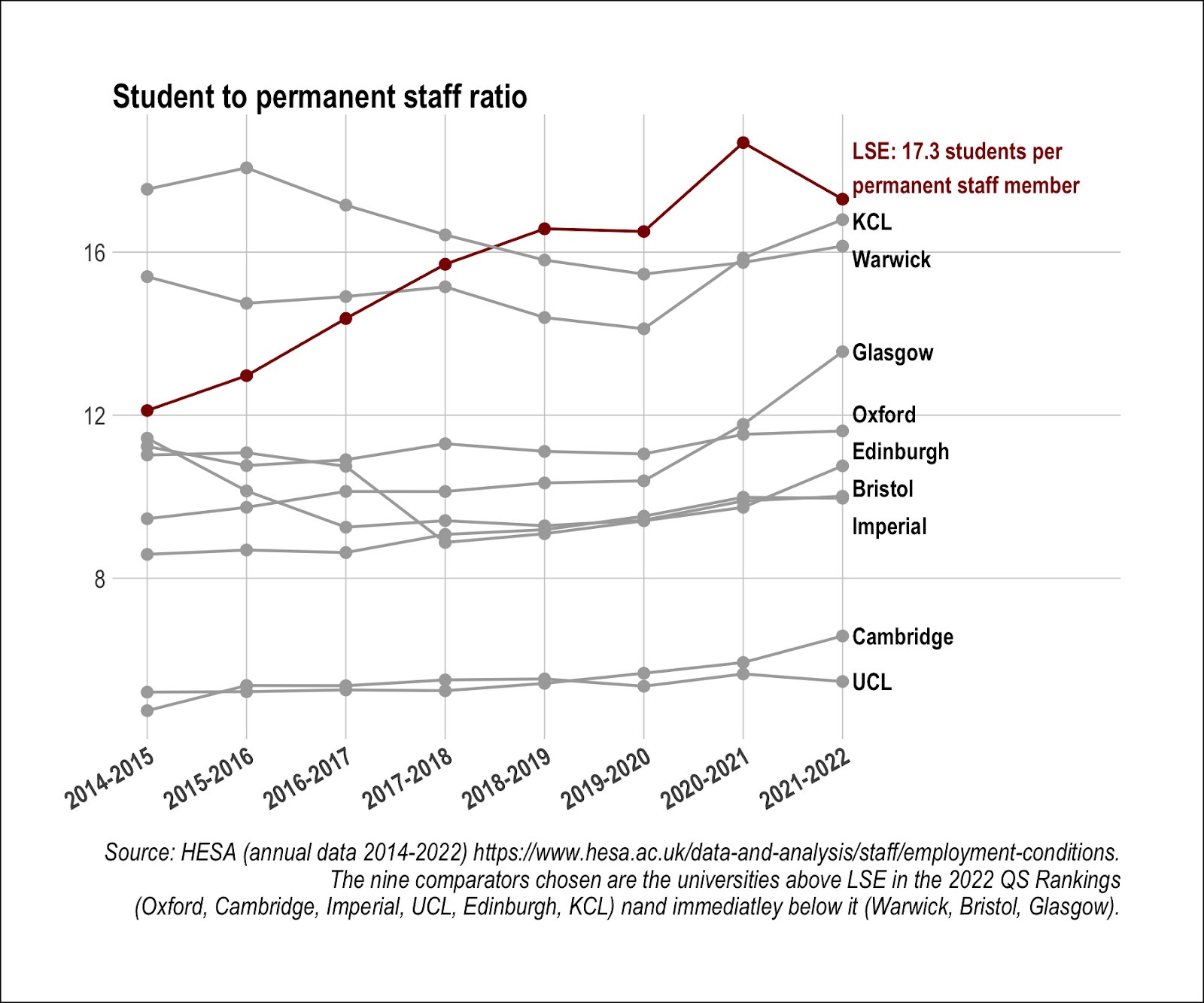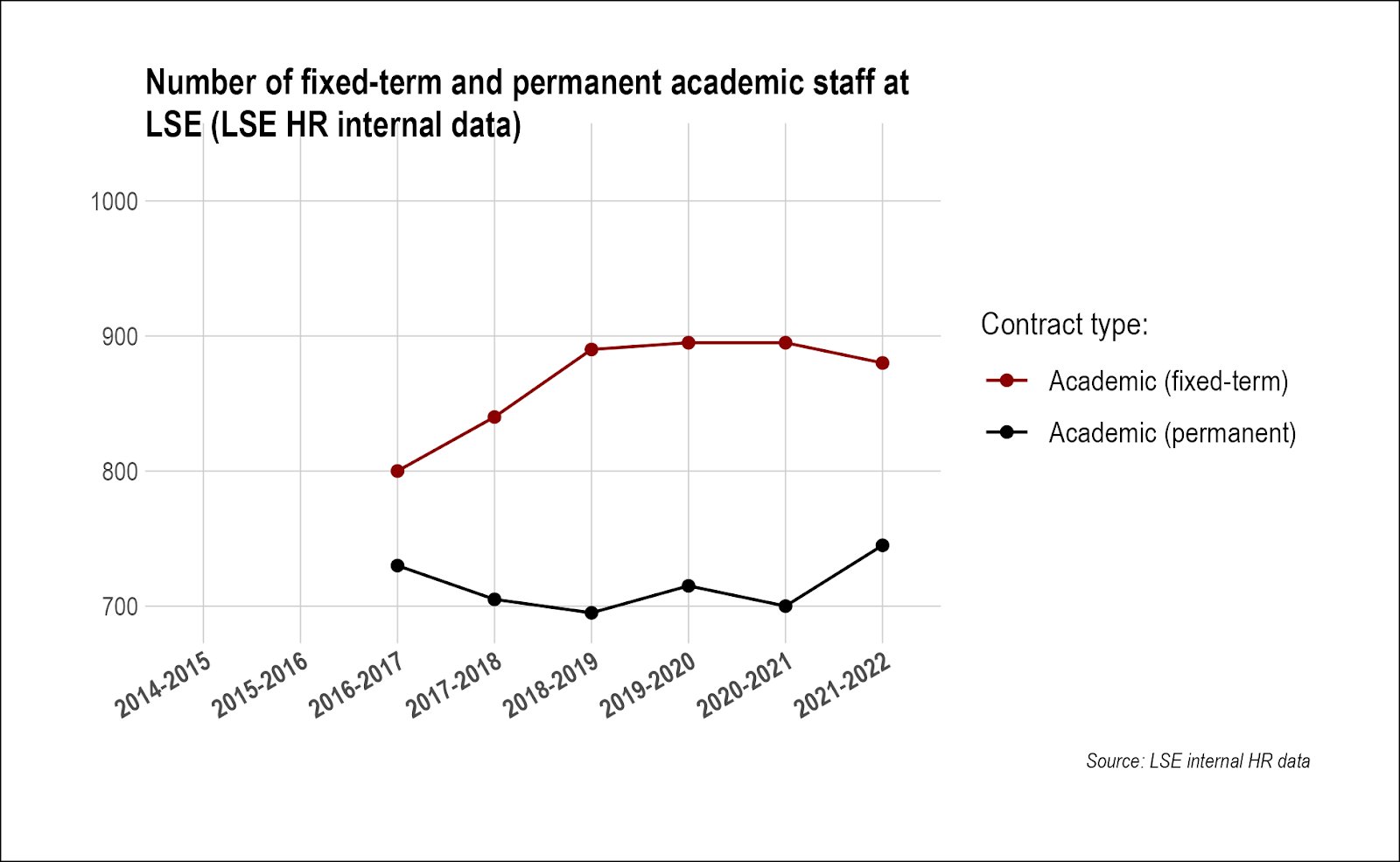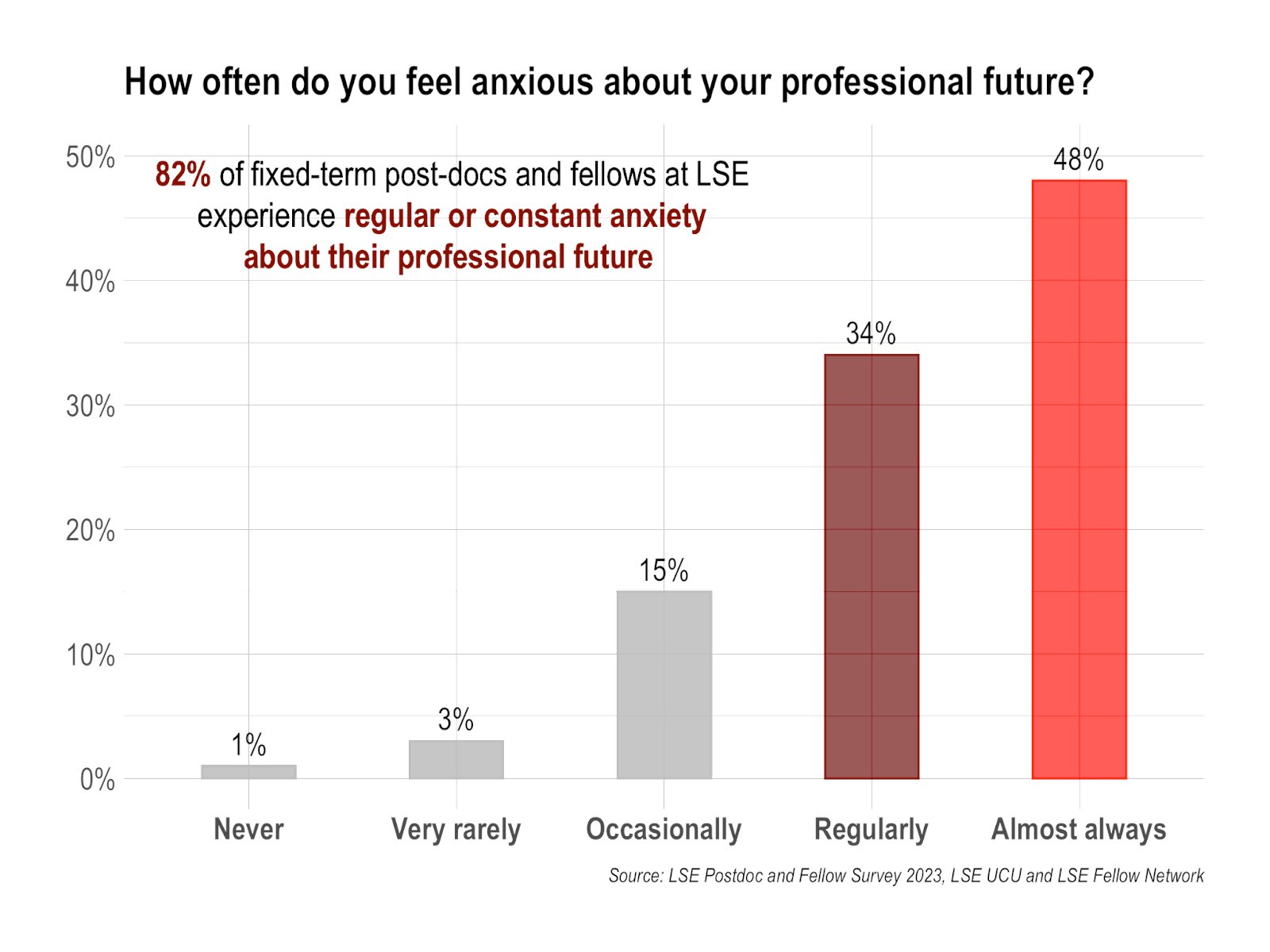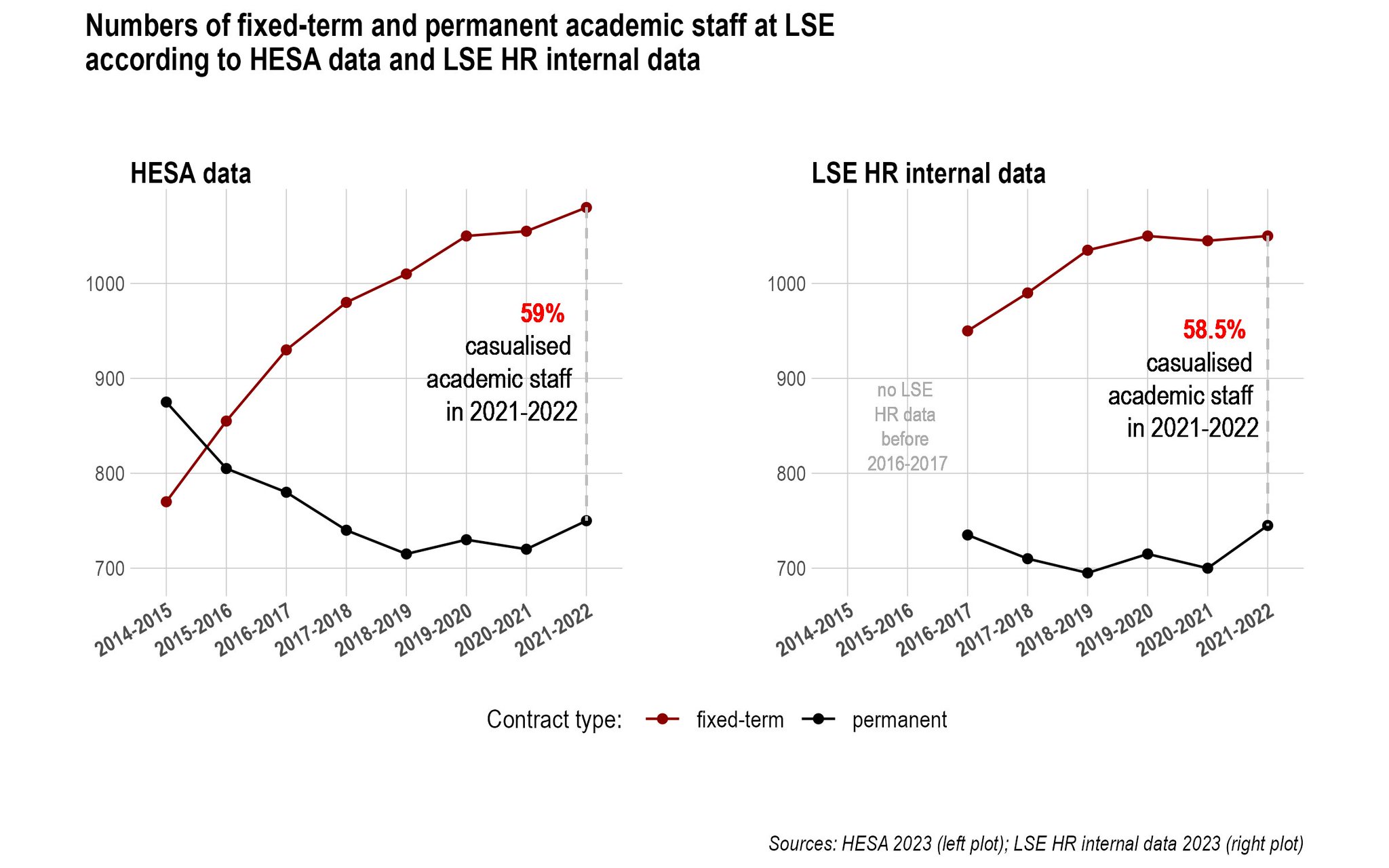Thread
There's a crisis of academic casualisation and precarity at the LSE. Insecure and short-term contracts are rife. We're social scientists, so we decided to research how serious the problem is. Here's a thread with our key findings, 28-page report + code repository. @ucu #ucuRISING
Public HESA data shows LSE going through a process of steep casualisation of its academic staff from 2014-15 to 2021-22.
Fixed-term academic positions dramatically increased since 2014-15 while permanent positions dropped then stagnated (see gif in tweet above)
Fixed-term academic positions dramatically increased since 2014-15 while permanent positions dropped then stagnated (see gif in tweet above)
LSE's drop in the proportion of academic positions being permanent is in sharp contrast to most other comparable universities, where the number of permanent positions typically increased over the period:
LSE is one of the worst offenders when it comes to casualisation – with 59% of its academic staff on fixed-term contracts.
Yet student numbers are massively up – 22% since 2014-15. All non-UK students now pay £23,330/yr. EU students no longer pay home fees (£9,250) but int'l fees. LSE has increased its total tuition fee income from £177.2m in 2015-16 to 265.8m in 2021-22. So the money is there!
The student-to-permanent staff ratio at LSE is dramatically worsening. As of 2021-22, HESA data suggests LSE now has the worst student-to-permanent staff ratio among comparable unis: over 17 students per permanent members of staff. Casualised staff are shouldering the expansion
To give LSE a fair opportunity to respond to our findings, we presented them through its formal committee structure. LSE expressed reservations about the HSEA data, which is odd since it is provided directly by LSE to HESA, in line with all other universities!
LSE eventually shared their own internal HR data with us. Our analysis shows that it's overall congruent with the HESA-based analysis, with only a slight difference of magnitude (54% academic casualisation according to LSE HR, and 59% according to HESA) and a later starting date:
When held up against comparable universities, the LSE HR data places LSE third worst for casualisation, whereas the HESA data suggests it is second worst. Whichever data we use, there is a crisis of casualisation at LSE.
To gain deeper insights into casualised working conditions at LSE, we conducted a survey of postdocs and Fellows (with a higher response rate than LSE's own staff survey):
45% of respondents were hired on one-year contracts or shorter
40% of LSE Fellows teach 101+ hours/year
45% of respondents were hired on one-year contracts or shorter
40% of LSE Fellows teach 101+ hours/year
The impact of casualisation is terrifying. 82% of fixed-term academic staff experience regular or constant anxiety about their professional future.
Mental health issues are endemic among respondents, as is overwork (working regularly in the evenings, at the weekend, on vacation)
Mental health issues are endemic among respondents, as is overwork (working regularly in the evenings, at the weekend, on vacation)
Fellows and postdocs at LSE are acutely aware that the LSE will not hire them on a permanent basis. In fact:
92% are confident that they will not get a permanent academic position at LSE following the end of their current fixed-term contract.
92% are confident that they will not get a permanent academic position at LSE following the end of their current fixed-term contract.
This is particularly pertinent for migrant staff on visas, who are in an extremely precarious position if they face difficulties at work. The careful balancing act of aligning fixed-term employment contracts is incompatible with the hostile environment and threat of deportation.
In order to break the cycle of early-career academics rotating between casualised contracts, often having to uproot their lives while chasing their next payslip, we need LSE to change its institutional norms around what is appropriate and fair work.
The HESA data is freely available online (www.hesa.ac.uk/data-and-analysis/staff) and the code repository with the R code for the report is available here - feel free to use it to analyse casualisation in your own university!: bit.ly/42LDHTf
To read our proposals for how to substantively address this problem, and to read our in-depth analysis, check out our comprehensive 28-page report: docs.google.com/document/d/1FQiPscs_epkMnBdPyp-h8Wosyuw1oWVgsOHnFivDELE/edit?usp=sharing
Also available as a PDF: lseucu.com/wp-content/uploads/2023/03/The-Crisis-of-Academic-Casualisation-at-LSE_-2023-LSE-UCU-Repor...
For questions or media enquiries, DM us on Twitter!
Also available as a PDF: lseucu.com/wp-content/uploads/2023/03/The-Crisis-of-Academic-Casualisation-at-LSE_-2023-LSE-UCU-Repor...
For questions or media enquiries, DM us on Twitter!
